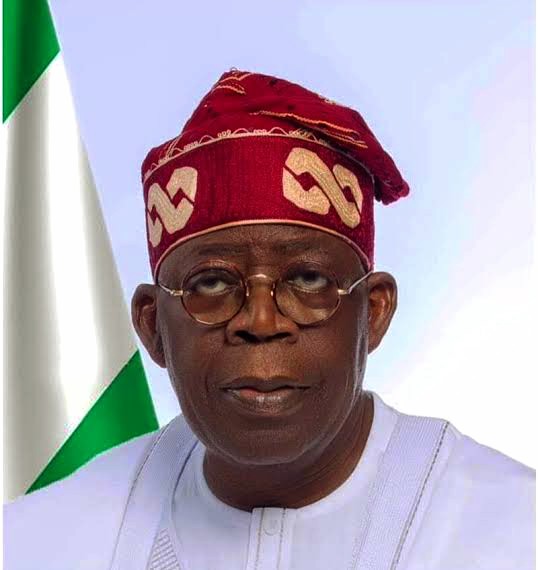
Bola Ahmed Tinubu: Biography, Political Career and News
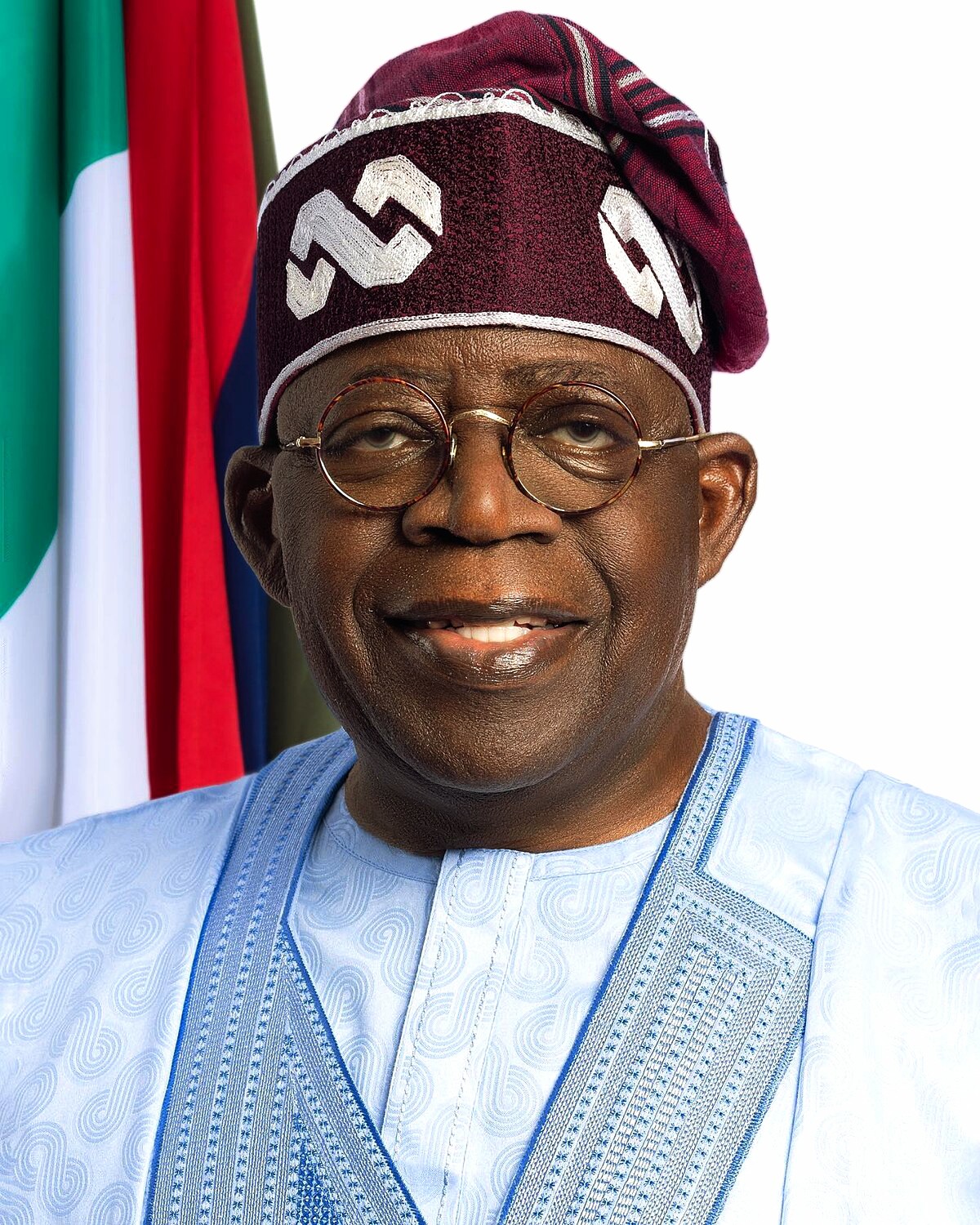
Bola Ahmed Tinubu, one of Nigeria’s most influential political figures, has significantly impacted the country’s political landscape. His journey from a grassroots politician to a national leader illustrates his strategic acumen and deep understanding of Nigerian politics. In this report, we examine Tinubu’s early life, political career, news, achievements and controversies, highlighting the various facets that have shaped his legacy.
Early Life and Education
Born on March 29, 1952, in Lagos, Nigeria, Bola Ahmed Tinubu hails from the southwestern region of the country. He attended St. John’s Primary School in Lagos and Children’s Home School in Ibadan. Subsequently, he moved to the United States, where he studied at Richard J. Daley College in Chicago, Illinois. Tinubu later earned a degree in Accounting from Chicago State University in 1979. This international education equipped him with a solid foundation in finance and management, which later proved crucial in his political career.
Journey into Politics
After returning to Nigeria in the early 1980s, Tinubu began his professional career in the private sector, working with Mobil Oil Nigeria. However, his foray into politics started in 1992 when he won a seat in the Nigerian Senate, representing the Lagos West Constituency. Unfortunately, his tenure ended abruptly due to the military coup of 1993, which dissolved the Senate.
Nevertheless, Tinubu’s political journey did not end there. He became a founding member of the pro-democracy group, National Democratic Coalition (NADECO), which opposed the military regime and campaigned for the return of democratic governance. This activism marked him as a staunch advocate for democracy and human rights in Nigeria.
Governorship and Legacy in Lagos State
Transitioning from activism to executive leadership, Tinubu won the governorship of Lagos State in 1999 under the platform of the Alliance for Democracy (AD). His two-term tenure, lasting until 2007, featured significant reforms and development projects. Notably, Tinubu focused on improving Lagos’s infrastructure, healthcare, and education systems.
For instance, he initiated the construction of new roads and the rehabilitation of existing ones, which significantly alleviated the notorious traffic congestion in Lagos. Additionally, he enhanced waste management systems, contributing to a cleaner environment. In education, Tinubu’s administration established new schools and upgraded facilities, improving educational standards in the state.
Moreover, Tinubu’s fiscal policies were pivotal. He implemented measures to boost Lagos State’s internally generated revenue, reducing dependency on federal allocations. This financial autonomy allowed for more consistent and strategic development planning.
National Political Influence
Following his tenure as governor, Tinubu continued to exert considerable influence on national politics. He played a crucial role in forming the Action Congress (AC), which later evolved into the Action Congress of Nigeria (ACN). His political maneuvers and alliances were instrumental in creating the All Progressives Congress (APC) in 2013, a merger of four opposition parties.
Moving from a regional to a national political figure, Tinubu’s strategic acumen was evident in the 2015 general elections. Notably, he was a key architect in the coalition that led to the election of Muhammadu Buhari as President, effectively ending the 16-year rule of the People’s Democratic Party (PDP).
Controversies and Criticisms
Despite his achievements, Tinubu’s career has not avoided controversies. Accusations of corruption and nepotism often surround his political activities. Critics argue that his extensive influence over Lagos State’s political and economic spheres has led to a concentration of power and resources among his associates and family members. Additionally, allegations of manipulating electoral processes have also marred his reputation.
Personal Life
He married Senator Oluremi Tinubu, and they have several children, underscoring the importance of family in his journey. Additionally, Tinubu maintains a strong connection to his Yoruba heritage and actively participates in cultural and community events. His philanthropic efforts, particularly in education and healthcare, highlight his commitment to societal development. Despite facing controversies and public scrutiny, Tinubu’s resilience and dedication to his family and community continue to shape his legacy, offering a deeper understanding of the man behind the political figure.
Tinubu Net Worth
Bola Ahmed Tinubu’s net worth generates considerable debate in Nigeria. His wealth stems from his tenure as Governor of Lagos State, investments in real estate, and ownership stakes in various companies. Additionally, his strategic political alliances have provided vast economic opportunities. However, allegations of corruption and financial improprieties prompt ongoing scrutiny. Despite the elusive exact figures, Tinubu ranks among Nigeria’s most affluent and influential individuals.
President Bola Ahmed Tinubu News
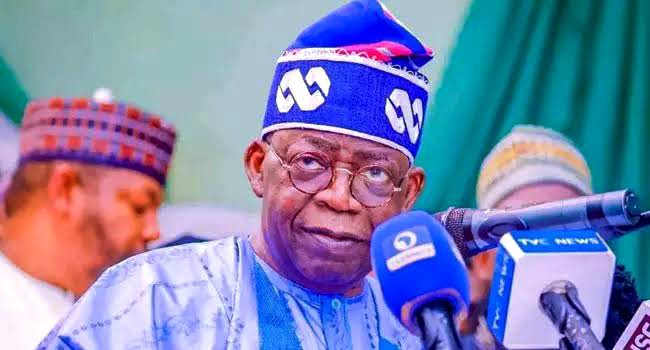
Tinubu Emphasizes Accountability with Commissioning of N21 Billion Vice-President’s Residence
President Bola Tinubu recently took significant steps in various initiatives and announcements. One notable development is commissioning a new official residence for the Vice-President, constructed at a cost of N21 billion. This project, which the administration took 14 years to complete, stands as a symbol of respect for the office of the Vice-President. Tinubu emphasized the importance of completing inherited projects to avoid wastage and reaffirmed his administration’s commitment to accountability and transparency.
Tinubu Commits to National Living Wage, Prioritizing Nigerians’ Well-being
Moreover, Tinubu pledged a new national living wage for workers, scheduled for implementation in 2024. This initiative forms part of broader economic recovery plans aimed at enhancing the well-being of Nigerians, especially the poor and vulnerable. The President stressed the economic soundness and moral correctness of this move.
Tinubu’s First Year in Office: Progress Amidst Public Scrutiny
Additionally, Tinubu commemorated his first year in office amidst mixed reactions from the public. While his administration has made strides in certain areas, such as job creation and agricultural investment, challenges persist. Many Nigerians grapple with inflation, unemployment, and high living costs, partly due to spikes in petrol prices. The President’s efforts to address these issues include ongoing infrastructure projects and initiatives to boost local production and ensure steady electricity supply.
Climate Change Appointments
Tinubu appointed Dr. Nkiruka Maduekwe as the interim head of the National Council on Climate Change (NCCC). Consequently, this move aligns with his administration’s goal to boost Nigeria’s green industrial vision and attract climate finance investments.
2024 Budget and Economic Policies
The president signed the 2024 Appropriation Bill into law, emphasizing priorities like defense, job creation, and macroeconomic stability. Furthermore, the budget aims to address various socio-economic issues and includes measures for improving investment environments and social security.
Infrastructure Investments
President Tinubu announced plans for major infrastructure projects across Nigeria, aiming to stimulate economic growth and improve connectivity. This includes investing in roads, bridges, and public transportation systems.
Healthcare Initiatives
The government launched a nationwide healthcare program focused on improving access to quality medical services, especially in rural areas. This initiative aims to enhance healthcare infrastructure and address public health challenges.
Anti-Corruption Measures
President Tinubu intensified efforts to combat corruption within the government and private sectors. This includes establishing anti-corruption task forces and implementing stricter regulations to promote transparency and accountability.
International Relations
Nigeria, under Tinubu’s leadership, strengthened diplomatic ties with neighboring countries and international partners. Recent diplomatic visits and trade agreements aim to foster cooperation and promote economic development.
These actions and policies reflect Tinubu’s ongoing efforts to stabilize Nigeria’s economy and address environmental concerns, and also his active efforts to tackle various challenges facing Nigeria while positioning the country for sustainable growth and development, though public opinion remains divided on the effectiveness of his administration’s first year in office. Overall, Tinubu’s administration faces scrutiny as it endeavors to fulfill its promises under the “Renewed Hope” agenda.
President Bola Ahmed Tinubu Ministerial List
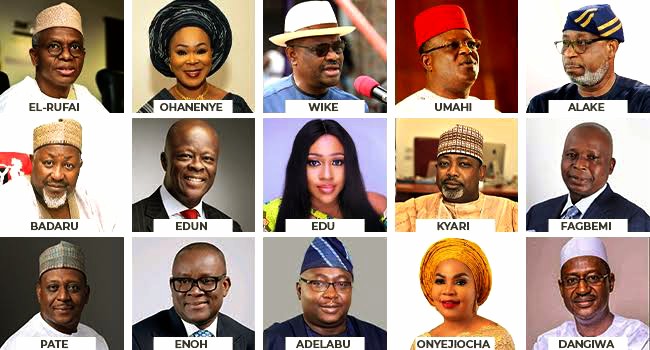
President Bola Ahmed Tinubu released his ministerial list, featuring a diverse group of 45 nominees. Notably, this selection includes seasoned politicians, technocrats, and new faces, collectively addressing Nigeria’s challenges in economic development, security, infrastructure, education, and healthcare.
Important figures on the list include Nyesom Wike, former governor of Rivers State; Nasir El-Rufai, former governor of Kaduna State; and Ali Pate, a Harvard professor and former Minister of State for Health. These individuals bring extensive experience and expertise to their respective roles.
Key appointments include:
- Wale Edun as Minister of Finance and Coordinating Minister of the Economy,
- David Umahi as Minister of Works,
- Festus Keyamo as Minister of Aviation and Aerospace Development,
- Nkiruka Onyejeocha as Minister of State for Labour and Employment,
- Dele Alake as Minister of Solid Minerals Development.
Tinubu aims to form an inclusive and competent government, as indicated during his inaugural speech. He emphasized that his administration will prioritize merit and competence over political considerations.
The nominees will undergo confirmation hearings by the Senate, where their qualifications and suitability for the positions will receive thorough examination. The Senate’s approval is necessary for the nominees to officially assume their roles.
In summary, Tinubu’s ministerial list reflects his commitment to effective governance by appointing individuals with diverse backgrounds and expertise to steer Nigeria towards progress and prosperity.
President Bola Ahmed Tinubu News Today
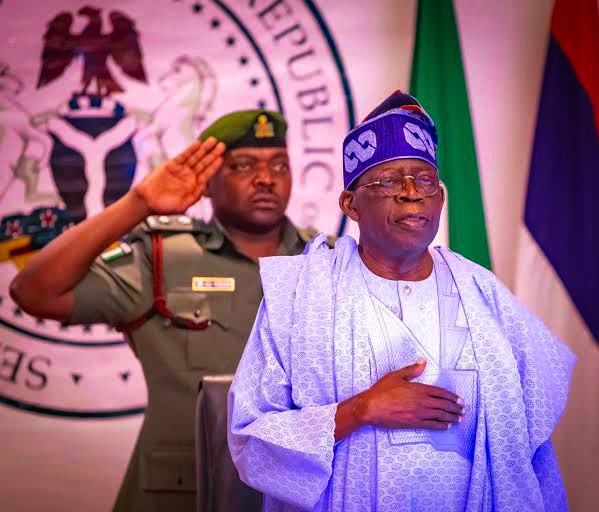
Today, President Bola Tinubu spearheaded significant developments in Nigeria, highlighting notable advancements in his administration’s policies and economic agenda. Tinubu signed the 2024 Appropriation Bill, a landmark budget that underscores his administration’s commitment to economic stability, security, and human capital development.
2024 Budget: 28.7 Trillion Naira for Security, Jobs and Growth
The 2024 budget, dubbed the “Budget of Renewed Hope,” totals 28.7 trillion naira. It prioritizes defense and internal security, job creation, macroeconomic stability, improved investment environments, human capital development, poverty reduction, and social security. This budget aims to provide a robust foundation for sustainable economic development and improve the overall quality of life for Nigerians.
President Bola Ahmed Tinubu Pledges Security Overhaul to Protect Lives and Investments
Tinubu promises an overhaul of the national security architecture to enhance law enforcement capabilities, aiming to safeguard lives, property, and investments across the country. This overhaul addresses ongoing security challenges that have impacted various regions.
President Bola Ahmed Tinubu Sets Ambitious Economic Growth Target for 2024
In terms of economic policy, Tinubu set ambitious goals. Firstly, he expects the economy to grow by at least 3.76% in 2024, surpassing global averages. This growth relies on a conservative oil price benchmark of 77.96 USD per barrel and an estimated daily oil production of 1.78 million barrels. Additionally, the naira-to-dollar exchange rate stands at 750 naira per USD for 2024.
Tinubu Emphasizes Public-Private Partnerships for Sustainable Infrastructure Growth
To foster economic growth, Tinubu’s administration focuses on public-private partnerships to leverage private capital for major infrastructure projects, including the energy and transportation sectors. These projects aim to diversify Nigeria’s energy mix and promote renewable energy sources, positioning Nigeria as a leader in sustainable energy within the region.
President Bola Ahmed Tinubu Boosts Education: Introduces Student Loan Scheme for Education
Tinubu’s commitment to human capital development shows in his budgetary allocations. Additionally, he emphasizes that human capital is Nigeria’s most critical resource, with particular attention given to children and education. Moreover, the Student Loan Scheme, set to commence in January 2024, aims to provide a more sustainable model of funding tertiary education.
2024 Budget: 27.5 Trillion Naira Expenditure with Reduced Deficit
On the fiscal front, the budget outlines an aggregate expenditure of 27.5 trillion naira, with significant allocations for capital and recurrent expenditures, debt servicing, and statutory transfers. Moreover, the budget deficit stands at 9.18 trillion naira or 3.88% of GDP, which reduces the previous year’s deficit. Consequently, this deficit will be financed through new borrowings and other financial strategies.
President Bola Ahmed Tinubu Approves Over 1.1 Trillion Naira Budget for FCT Development
Additionally, Tinubu approved a significant budget for the Federal Capital Territory (FCT), exceeding 1.1 trillion naira. This budget includes substantial allocations for overhead expenses, capital projects, and personnel costs, reflecting his administration’s commitment to the development of Abuja and its surrounding areas.
Tinubu Implements Monthly Performance Reports for Government Accountability
Tinubu mandated all Ministries, Departments, and Agencies (MDAs) to submit monthly performance reports, thereby ensuring the diligent implementation of the budget. Consequently, this directive enhances transparency, accountability, and value for money in government spending.
President Tinubu’s actions today highlight a comprehensive approach to addressing Nigeria’s challenges and promoting sustainable growth. Additionally, his administration’s focus on security, economic stability, human capital development, and transparency in governance sets a proactive agenda aimed at renewing hope and fostering development across the nation.
Conclusion

In conclusion, Bola Ahmed Tinubu’s journey through Nigeria’s political landscape showcases a blend of strategic brilliance, leadership, and contentious politics. His impact on Lagos State’s development and his role in shaping the country’s political dynamics remain undeniably significant. However, the controversies surrounding his career reflect the complex nature of Nigerian politics. As Tinubu continues to be a central figure in the APC and national politics, his legacy remains a subject of robust debate and analysis.
Related Topics
Naija News Roundup: Latest and Trending Updates in Nigeria
Nigeria Anthem: President Tinubu Reinstates Old National Anthem
Joe Biden: Biography and Political Career
Nigeria Police Force: Facts to Know About The Inspector General of Police (IGP)

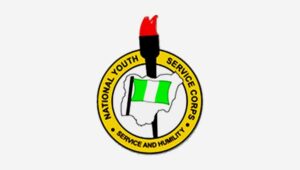

Great biography and achievements